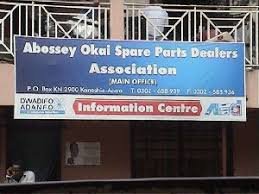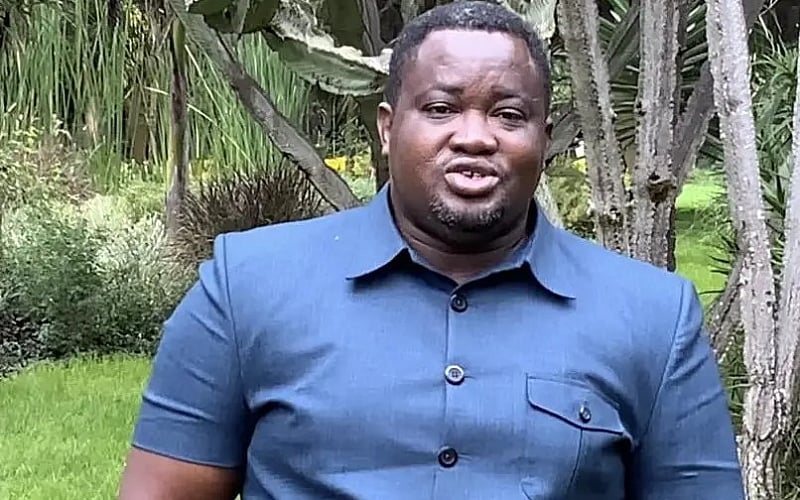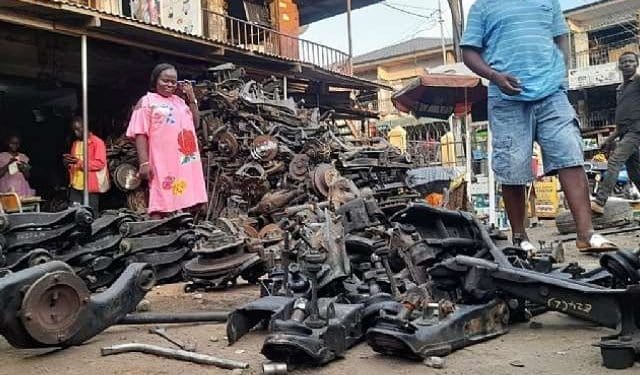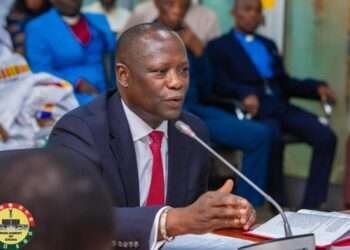Political Commentator Larry Dogbe, has urged Ghanaian traders to embrace competition and globalisation in the face of renewed tensions over foreign participation in the retail sector.
His comments followed the ultimatum issued by the Abossey Okai Spare Parts Dealers Association, which gave foreign traders three days to shut down their shops or face enforcement action.
The Association argued that foreign traders operating at Abossey Okai violate Ghana’s investment laws, distort fair competition, and threaten the survival of local businesses. The ultimatum has reignited national debate about Ghana’s investment policy, consistency in governance, and the role of foreign capital in local markets.
Speaking on the issue, Mr. Dogbe stressed that Ghana must be consistent in its approach to investment and foreign participation. He highlighted contradictions in the government’s approach, questioning how leaders could simultaneously encourage foreign investment while resisting the presence of foreign traders in local retail markets.
“We can’t talk about globalisation and still be where we are. Globalisation comes in various forms, technology transfer and the movement of people; you need to welcome it. You also need to appreciate the competition that it brings to you and be prepared for it”
Larry Dogbe, Political Commentator

According to Mr. Dogbe, successive Presidents have toured the world in search of investors, yet such efforts are undermined when foreigners are later discouraged from active participation in Ghana’s economy.
“What type of investments are they looking for?” he asked, stressing that unlike locals, foreigners often fully utilise the opportunities offered in Ghana’s market, even to the point of working at odd hours to greatly increase their gains. Gains, which he pointed out, gets sent out to their home countries.
“Do you tell them not to work in the middle of the night?” he asked, prompting locals to explore more tangible options to the competition.
Contradictions in Local Practices
Mr. Dogbe also linked the debate to past initiatives such as One-District-One-Factory and the current discussion around the 24-hour economy, stressing that Ghanaians must decide whether they are ready to compete or continue to blame foreigners for taking opportunities.
The political commentator further criticised Ghanaian traders who protest foreign competition but simultaneously rent out their shops to the same people they want expelled.

“It’s like blowing hot and cold. What is it that we want as far as our investments are concerned? Do we want money? How do we make the money? Is it by partnership or sole proprietorship? If that is what we want, we should be clear in what we want to do”
Larry Dogbe, Political Commentator
He also emphasised that retail business in Ghana has historically not been dominated by locals, cautioning that the current standoff at Abossey Okai should not be misinterpreted as targeting Nigerians alone.
Other Perspectives in the Debate
Beyond Mr. Dogbe’s views, other commentators have weighed in on the implications of foreign dominance in retail trade. NPP’s Dr. Ezekiel Agyekum-Obeng argued that Ghana’s rapidly expanding digital systems offer alternatives for young entrepreneurs to build businesses without physical shops.
“No shop, no capital, just creativity,” he said. However, he noted that loopholes in Ghana’s laws have allowed foreigners to exploit local opportunities and called for a closure to the situation to safeguard consumer protection and bolster clean business practices.
Deputy CEO of the Environmental Protection Agency, Prof. Michael Ayamga-Adongo, also joined the discussion, urging traders to focus on competitive pricing rather than attempting to enforce investment laws themselves.

“Consumers are discerning, they take everything into consideration and buy smart,” he said, stressing that some Ghanaian traders have priced themselves out of the market due to greed, thereby creating openings that foreign retailers are now occupying.
Prof. Ayamga-Adongo warned that unilateral enforcement of laws by spare parts dealers could have international consequences.
The latest tensions at Abossey Okai underscore longstanding debates about the Ghana Investment Promotion Centre Act, 2013 (Act 865), which reserves petty trading for Ghanaians. Analysts argue that the law must be enforced by the state and not by private associations, while others insist that adaptation to global competition offers a more sustainable path.
As Ghana continues to navigate globalisation and regional integration the clash between protectionism and openness remains unresolved. For Mr. Dogbe, the solution lies in consistency, transparency, and a willingness to accept that foreign participation is an inseparable part of Ghana’s economic landscape.
READ ALSO: Ghana Vows Fiscal Discipline Beyond IMF Exit as 2026 Deadline Nears




















